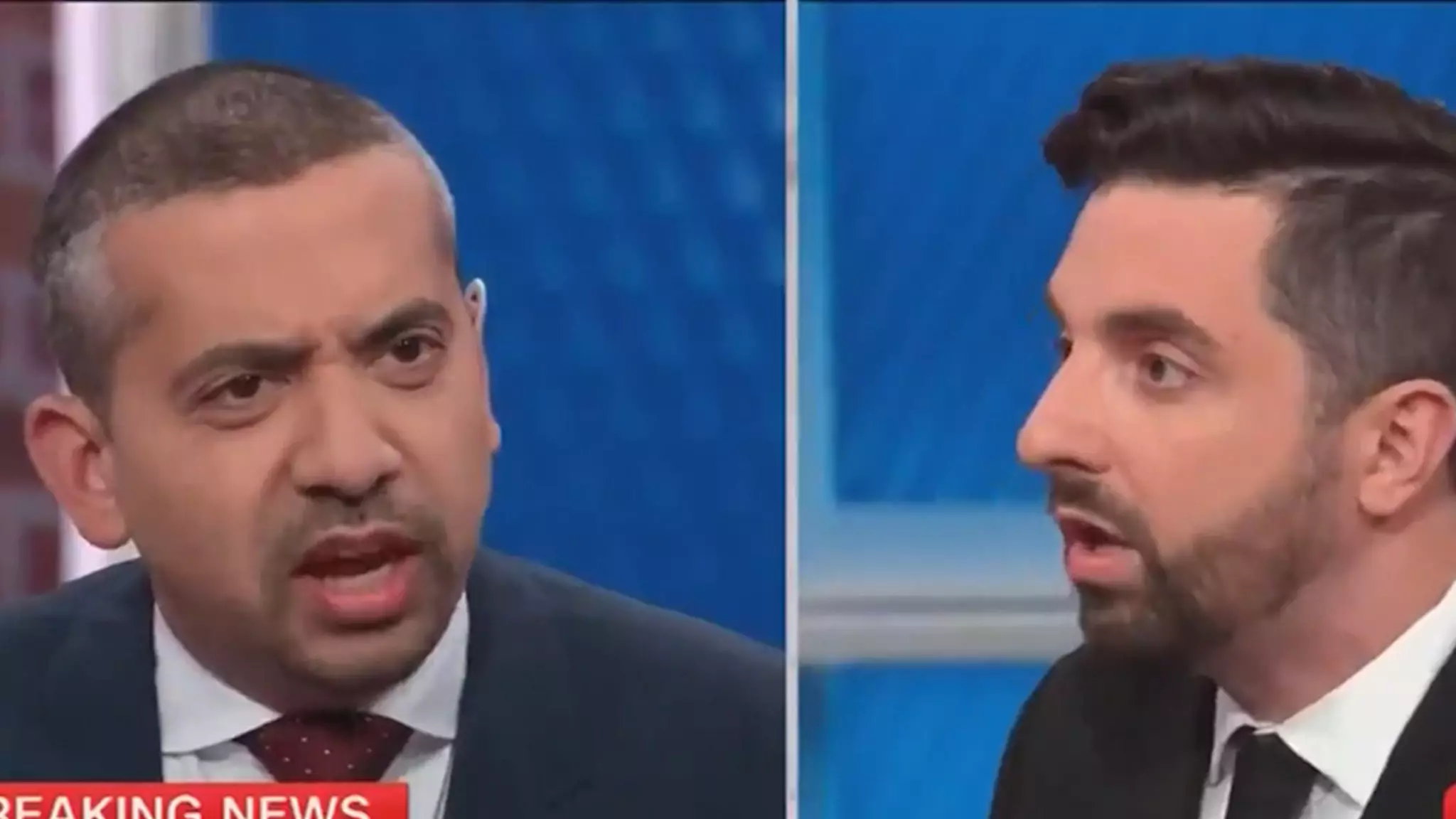In today’s hyper-polarized media landscape, the exchange of ideas often leads to heated debates overflowing with emotional rhetoric. A recent incident involving political commentator Ryan Girdusky illustrates this tumultuous environment, as his controversial “beeper” remark during a televised debate has ignited a firestorm of criticism. Girdusky’s comments, perceived as offensive and racially charged, have raised important questions about the boundaries of humor, the role of media ethics, and the responsibility of commentators to foster constructive dialogue rather than inflame tensions.
Girdusky’s remarks occurred during a segment of CNN’s “NewsNight With Abby Phillip,” where he made the infamous comment to fellow guest Mehdi Hasan while addressing the complicated issue of antisemitism and support for Palestinians. Specifying a reference to an event involving Hezbollah, the comment went beyond mere provocation, eliciting a strong backlash and ultimately leading to Girdusky being banned from CNN. This sequence of events highlights the profound impact that language can have in public discourse and the significant responsibilities that come with commentary in the public eye.
Upon analyzing Girdusky’s “beeper” comment, it is evident that his intention was shrouded in ambiguity. While he attempted to position his statement as a joke, the context in which it was delivered transformed any humor into a potentially harmful assertion, suggesting violent implications. The reference to “beeper” carries historical baggage that ties directly to real-life violence, particularly regarding Middle Eastern conflict, and was interpreted as a slur cloaked in humor.
Girdusky later defended himself, claiming that he believed Hasan supported Hamas rather than the Palestinian cause in general. This defense raises a critical issue: the tendency among commentators to oversimplify complex political realities to fit a narrative or provoke a reaction. In this instance, Girdusky’s simplification may have cost him not just his appearance on CNN but also credibility in the broader discourse surrounding political debates.
The response from CNN has underscored a growing ethos among news organizations to hold contributors accountable for their words. Following Girdusky’s comments, network executives were quick to issue a statement delineating their adherence to a zero-tolerance policy regarding racism and bigotry. This reaction is indicative of a broader movement within media circles that seeks to foster a more respectful and responsible dialogue.
News media plays a dual role: it informs the public while also shaping the national conversation. When such figures as Girdusky engage in rhetoric laden with insinuations of violence or intolerance, it complicates this role and brings into question the ethical implications of their platform. The response from host Abby Phillip, who condemned the remarks both on air and through video, reflects an increasing awareness among journalists of the responsibility they hold in countering divisive narratives.
Public Reaction and the Cycle of Outrage
The public’s reaction to Girdusky’s comments has been both vocal and divided. On one hand, there are those who uphold the notion of free speech and assert that humor, even if considered off-color, should be tolerated as part of broader political discourse. Conversely, the outcry against Girdusky illustrates the real and damaging consequences that racially charged rhetoric can have, particularly in context-sensitive discussions such as those surrounding terrorism and race relations.
Girdusky acknowledged that the media thrives on outrage, suggesting that his comment was merely another piece in the complex puzzle of modern news cycles that often prioritize sensationalism over substance. Yet, this acknowledgment raises an important question: can one claim to be uninhibited in their commentary while simultaneously contributing to the very outrage they criticize?
The controversies surrounding Ryan Girdusky’s “beeper” comment serve as a cautionary tale for political commentators and media organizations alike. While free speech and provocative discussion will inevitably remain integral to political dialogue, the implications of such remarks must be critically evaluated. The incident emphasizes the need for a collective responsibility—commentators must be cautious in their language, while media outlets must ensure they uphold ethical standards that promote constructive discourse.
Moving forward, this incident should prompt a deeper reflection on the dynamics of political commentary and the societal responsibility that accompanies the freedom to express. As audiences become more aware of the repercussions of inflammatory rhetoric, it becomes increasingly vital for all participants in the media discourse to navigate these waters with sensitivity and accountability.

